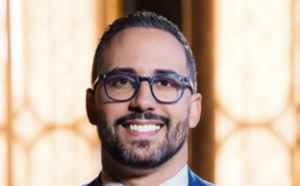Who is a member?
Our members are the local governments of Massachusetts and their elected and appointed leadership.

City Manager Eric Batista
Hoping to broaden opportunities for diverse local businesses, Worcester is offering $5,000 to women- and minority-owned businesses that complete a business certification process through the state.
Since mid-April, the city’s Diverse Business Certification Grant Program has been offering grants to businesses that get certified through the Massachusetts Supplier Diversity Office or through affiliated certifying organizations. Businesses can put the grants toward operating expenses, and the city will accept applications on a rolling basis through Nov. 1.
City officials are seeking to increase the number of certified women- and minority-owned businesses in Worcester, as well as helping business owners overcome certification obstacles and barriers to seeking contracts, and increasing their visibility to consumers.
“This is a great opportunity to empower small businesses owned by women, minorities, and other underrepresented groups,” said City Manager Eric Batista. “Certification helps businesses be better positioned for contracting opportunities with government and private entities. It also helps the city meet its goals of contracting companies that are women-owned and minority-owned.”
The grants are available to Worcester-based businesses that get state certifications in these categories: Minority-Owned Businesses; Women-Owned Businesses; Veteran-Owned Businesses; Service-Disabled Veteran Owned Businesses; Lesbian, Gay, Bisexual and Transgender Owned Businesses; and Disability-Owned Businesses. To qualify for certification, a business must have at least 51% ownership in the particular category, and businesses that have achieved certification since September 2022 can apply for the grants.
The city has been working with the state to get business owners enrolled in the required pre-certification webinars, said Chief Development Officer Peter Dunn. By early July, the city had received 80 applications and has signed 11 grant agreements. Ultimately, the city hopes to award up to 210 grants, he said.
The program grew out of a city collaboration with the UMass Donahue Institute a few years ago examining the city’s contracting with businesses owned by underrepresented groups, and updating its goals for government contracting. The city has also been strengthening its internal processes for tracking progress toward its goals, Dunn said. But the challenge has been accessing a robust and reliable list of diverse Worcester-based businesses to do business with.
The city has had a Diverse Business Directory since 2019, Dunn said, but the listings were provided by businesses themselves and were not verified. However, that directory, which had 311 listings as of this month, highlights the information gap surrounding diverse business data — since the Supplier Diversity Office’s online dashboard, by contrast, lists only 72 state-certified Worcester businesses. And given that Worcester has roughly 8,000 businesses overall, Dunn said, the city knows there are more diverse businesses operating within its boundaries, and sees the new program as a way to identify more diverse business partners, and to connect businesses with each other.
“I do think that there are those other benefits of business-to-business relationships and business to consumers, because I think we’re seeing more intentionality now across the public and private sector, in the way that folks spend their dollars all the way down to the consumer level,” Dunn said. “And so by just having them as a certified business, and part of the database, it’ll potentially open doors and opportunities for those other kinds of relationships, other than just selling to government.”
Worcester is using two sources to fund the grants: $550,000 from the federal American Rescue Plan Act, and $500,000 from the Attorney General’s Office. Funds from the attorney general are part of a larger settlement related to the construction of the Polar Park baseball stadium in Worcester, reached with two construction companies that allegedly overstated the involvement of women- and minority-owned subcontractors in the project.